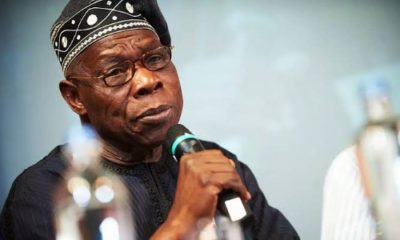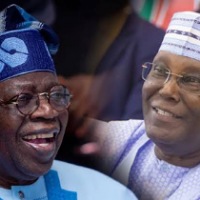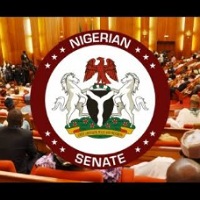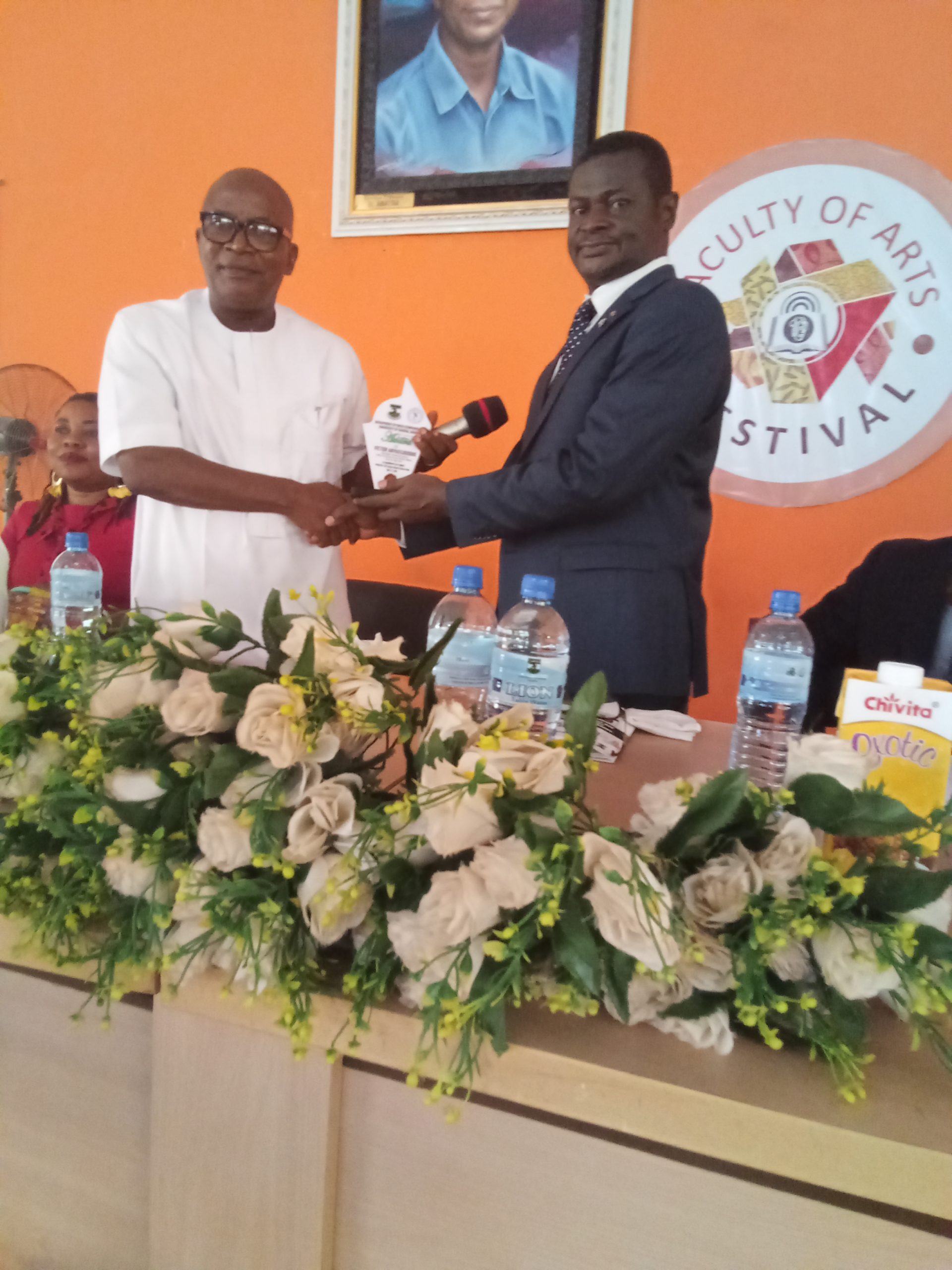Power
Olorunsogo phase ll Power Station never commissioned by Obasanjo- NDPHC

LAGOS-The management of Niger Delta Power Holding Company Limited (NDPHC), owners of the National Integrated Power Project (NIPP) has refuted some online reports (including PM News of 23/2/15) that the newly commissioned 750MW NIPP Olorunsogo ll Power Plants was commissioned by former President, Olusegun Obasanjo.This company said in a statement issued by its General Manager, Communication and Public Relations, Mr. Yakubu Lawal and made available to newsmen in Lagos.
Lawal said that the completion and commissioning of the phase II Olorunsogo plant was another manifestation of President Goodluck Jonathan’s commitment to deliver on his promises to complete inherited projects.
The General Manager said that the phase II is a combined circle plant consisting of 4No GE made Gas turbines, 4No Heat Recovery Steam Generators and 2no Steam turbine units each turbine unit of 125MW capacity.
governments of Nigeria) the Olorunsogo I project was basically an FGN project .
Power
Nigeria To Face Increase In Electricity Tariffs From July
According to reports, Nigeria’s population may face more challenging times ahead as electricity tariffs are projected to increase by over 40 percent in the near future.
This rise in tariffs could ultimately result in the elimination of all energy subsidies in the country.
Currently, the electricity sector relies on a monthly subsidy of approximately N50 billion, stemming from a shortfall in revenue.
The tariff hike, scheduled to take effect from July 1, will pose another significant test for President Bola Ahmed Tinubu’s administration and its ongoing market reforms.
The government has already taken steps to remove subsidies on Premium Motor Spirit (PMS) and implemented a floating exchange rate for the national currency.
These decisions have added complexity to the price-setting process of the Nigerian Electricity Regulatory Commission (NERC) and its 2022 Multi-Year Tariff Order (MYTO).
Despite power sector players failing to meet the target of supplying a minimum of 5,000 megawatts, even after signing contracts with the Nigerian Electricity Regulatory Commission (NERC), the current Service Based Tariff (SBT) is based on an exchange rate of N441/$ and an inflation rate of 16.97 percent.
According to NERC’s directives in 2015, the average tariff for distribution companies (DisCos) and different categories of end-users was N25 per kilowatt, as per Order 198/2020, which came into effect on September 1, 2020.
However, in the MYTO for 2022, the average tariff increased to N60 per kilowatt across all customer categories, and in the most recent update, it stands at N64 per kilowatt.
The determination of the 2015 tariff relied on a foreign exchange rate of N198.97/$, which increased to N383.80/$ in 2020 and further to N441.78/$ in 2022. In terms of inflation, the 2015 MYTO utilized an 8.3 percent rate, which rose to 12 percent in 2020 and reached 16.97 percent in 2022.
Currently, the inflation rate stands at 22.41 percent, and experts predict it could reach 30 percent by the end of June, considering the floating of the naira and the removal of subsidies on Premium Motor Spirit (PMS).
The tariff determination process takes into account various factors, including the significant metering gap of over seven million, gas prices, losses within the system, and the actual generation capacity. These elements play a role in determining the final tariff.
As anticipated, NERC had projected that the tariff for July 2023 would eliminate subsidies and introduce increases to the previously frozen tariff bands D and E.
These adjustments were intended to raise the bands from N54.59/kilowatt to N62.16 for band D and from N48.37/kilowatt to N61.16 on average. Moreover, the average increase across all bands was expected to reach N67/kilowatt.
However, due to the ongoing floating of the naira and the significant inflationary pressures, it is now projected that the new average tariff will need to be approximately N88/kilowatt for the power sector to recover its costs.
According to energy lawyer Madaki Ameh, the continuous and frequent increases in power tariffs are akin to a form of blackmail against electricity consumers.
Amen said “Indexing the cost of electricity on the dollar is a huge mistake because most of the inputs for electricity supply are local. The DisCos are also holding Nigerians to ransom by failing to increase the supply base, thereby spreading the tariffs across a broader spectrum of consumers to reduce the unit cost of electricity.”
He insisted that as long as there remain many unmetered consumers and many others not connected to the grid at all, the few consumers on the grid would continue to be subjected to unjust tariffs, which are not reflective of the quality of service delivered.
Ameh hoped that the signing into law of the new Electricity Act would mark “the beginning of light at the end of the long tunnel of inefficient and epileptic power supply in Nigeria.”
Segun Ajibola, the former President of the Chartered Institute of Bankers of Nigeria (CIBN) and a professor of Economics at Babcock University, highlighted that there remains a gap between the cost of electricity and the value it provides in exchange.
“Nigerians are still struggling to keep pace with the cost of energy for business and household use. If the electricity tariff goes up as envisaged, the question remains if there will be value for the quantum of electricity so paid for.
“The truth remains that if electricity supply is constant, of the right quantity and quality, the envisaged upward review in the tariff will be gladly absorbed by the populace,” he said.
Lanre Elatuyi, an Electricity Market Analyst, expressed that the recently implemented tariff rate would have significant implications. He emphasized that the devaluation of the Nigerian currency poses a major challenge for companies with dollar-denominated loans to repay.
He said “They will need more naira today to buy a dollar. They need to manage their exposure to foreign exchange risk. Even operators of hydro plants pay their concession fees in dollars. So, wholesale electricity price will be adjusted upward and this will get to the end users’ tariffs too.”
Power
Buhari’s Gov, State Governors Secretly Sold 5 Power Plants – Shehu Sani

Senator Shehu Sani, a prominent Nigerian lawmaker has accused President Muhammadu Buhari’s government and state governors of secretly selling five power generating plants without disclosing the utilization of the funds received.
He disclosed this in his Twitter handle on Monday.
Senator Sani, known for his outspoken nature and activism expresses his concerns over the alleged undisclosed sale of the power plants.
He claimed that the government, in collaboration with state governors, had carried out the transactions without informing the Nigerian public about the purpose of the funds acquired from the sale.
The post reads “Buhari’s Government in collaboration with the State Governors quietly sold the five power generating plants without telling the country what the money was used for.
Power
Nigeria’s VP Inaugurates 240MW Afam 3 Fast Power Project

The Vice President of Nigeria, Prof. Yemi Osinbajo, has inaugurated the Afam 3 Fast Power 240-megawatt turbine project in Rivers State.
The project, which is a subsidiary of the Transcorp Group located in Oyigbo, on the outskirts of Port Harcourt in the state, was unveiled during a ceremony that took place on Tuesday.
The event, which was attended by several dignitaries, including the Chairman of Transcorp Group, Tony Elumelu, and other top officials, saw the Vice President arriving at the venue in a chopper at exactly 11:35 am.
Upon his arrival, he was escorted into the premises where he officially inaugurated the project.
During his speech at the event, he disclosed that the acquisition of the project was approved by the National Council on Privatisation (NCP) and the acquisition cost was ₦105.3 trillion.
Osinbajo further emphasized that the successful completion of the project is a significant breakthrough in Nigeria’s power sector.
In his address, Osinbajo said, “In 2020, electricity subsidies reached N584 billion, but service-based tariffs have led to a doubling of collection in the Nigeria Electricity Supply Industry from N40 billion in 2020 to N80 billion in the first quarter of 2023.
“If this trajectory continues, the Nigeria Electricity Supply Industry will be able to pay for itself. Our administration has also created programs for off-grid for electrification. Rural Electrification Agency now has the capacity to provide electricity supply on a first-class basis.
“We are on track to electrify all Nigerians in the next decade. However, we will not make progress if our gas supply does not improve. The gas supply challenges are hampering improvements.”
He further lauded General Electric, the National Council on Privatization (NCP), and the host communities for their contribution to the completion of the Afam 3 Fast Power 240-megawatt turbine project in Rivers State.
Osinbajo highlighted that the successful completion of the project will significantly increase the country’s power supply capacity, leading to a better quality of life for Nigerians.
In November 2020, the federal government and the Transcorp Power Consortium signed a share sale and purchase agreement in relation to Afam Power Plc and Afam 3 Fast Power Limited.
The National Council on Privatization approved the privatization of the Afam Power Plant back in August 2017, which triggered a competitive bidding process involving 12 prospective investors.
After careful consideration, Transcorp Power Consortium emerged as the preferred bidder with a combined offer of N105 billion.

























